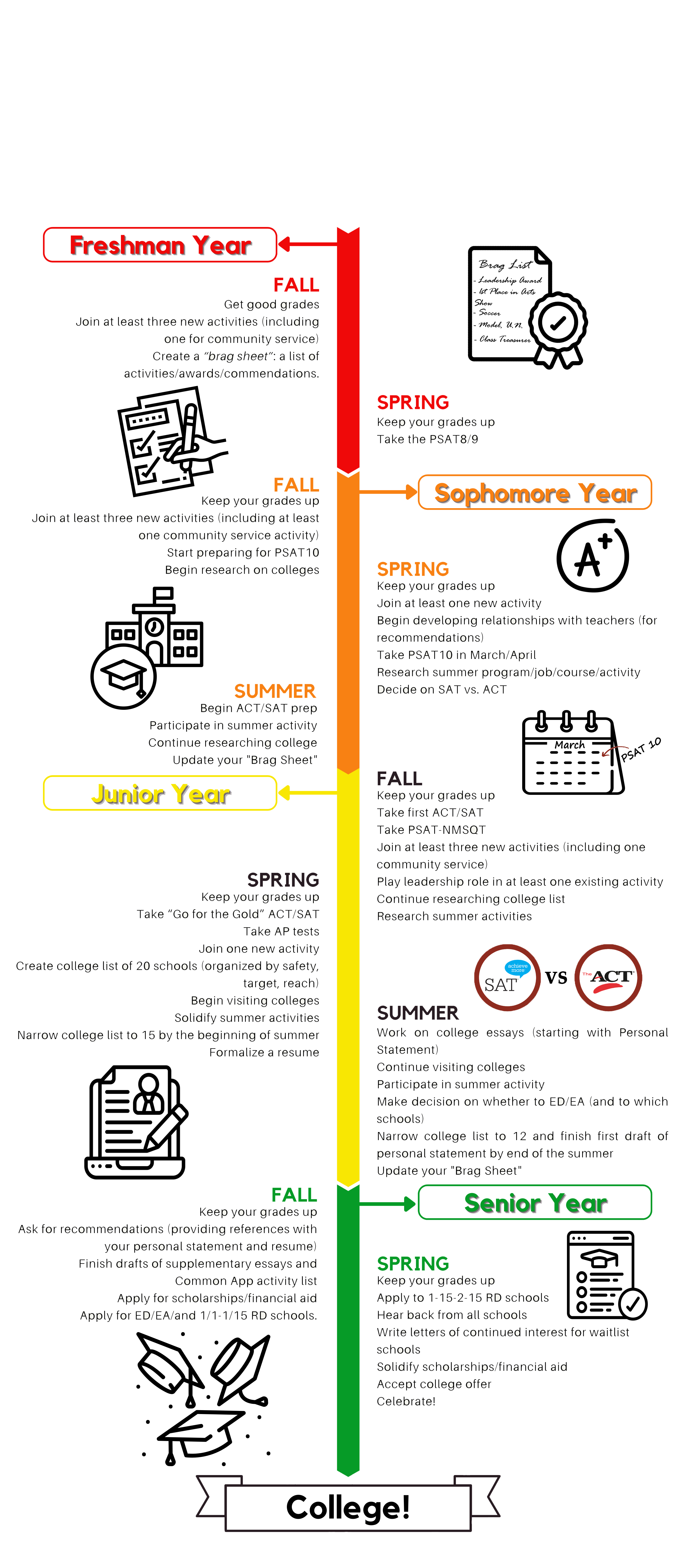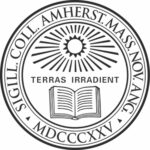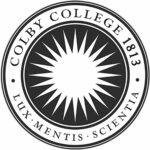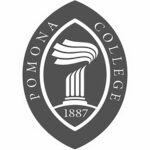
College Planning Webinar Series
If the new college admissions landscape seems especially anxiety-provoking and confusing, you are not alone. Acceptance rates have narrowed,
Call or Text Today And Schedule Your Complimentary Consult: (773) 405-4775
Call or Text Today and Schedule Your Complimentary Consult: (773) 405-4775
College Counseling and College Selection
Personal Statement Assistance
Supplementary (College-Specific) Essay Guidance
Support for extracurricular activities, recommendations, and financial aid
Confidence boosting and anxiety management

College Counseling and College Selection
Personal Statement Assistance
Supplementary (College-Specific) Essay Guidance
Support for extracurricular activities, recommendations, and financial aid
Confidence boosting and anxiety management
Are you eager to stay on top of the latest updates, fascinating stories, and exclusive insights? Look no further! Join our exclusive email newsletter community and embark on a journey of knowledge, inspiration, and discovery.
If the new admissions landscape seems especially anxiety-provoking and confusing, you are not alone. Acceptance rates have narrowed, expectations have expanded, and selective colleges are relying on a new approach, which they somewhat confusingly call “holistic” admissions.
While the rest of the college admissions world uses antiquated models that may have worked 20 years ago, or even pre-COVID, The Krupnick Approach prepares you with methods that work in today’s admissions landscape. We guide students and parents through the three core elements of the college admissions process:
Requirements form the foundational infrastructure of the college prep process. These include good grades, solid test scores, and meaningfully rigorous college-prep courses. We help students with all of these parts of the process – from academic coursework to ACT/SAT prep – and have the best track record in the field in standardized test preparation.
Strategy is the bread and butter of what most people think of when they start “college counseling.” We do it a little differently. Strategy and Positioning starts with a plan and a systematic timeline with chronologically overlapping projects. It’s extremely useful to begin this process early, and there’s nothing wrong with completing some of these projects at the same time. You do not need perfect ACT/SAT scores before visiting colleges. You don’t need to know exactly what you want to study before making your list. In regular consultation sessions with students and parents, we help our families think through strategy-related questions:
Given my interests, what kinds of activities should I pursue – and how?
How should I think about summer programs?
Whom should I ask to write my college recommendations – and how do I ask them?
How should I think about the college essays – and what is the difference between the Personal Statement (Common App Main Essay) and each of the college-specific supplementary essays?
When I begin to design my list, how many colleges should I include – and how do I make distinctions between “safeties,” “targets,” and “reaches”?
What are my statistical odds at these different colleges–given my GPA and test scores?
When I begin to narrow down my list, how many colleges should I narrow it down to – and how do I make the most of my college visits at these schools?
How do I think about Early Decision, Early Action, and Early Decision II – and when should I ED vs. when should I not ED?
Discovery is about determining what you are interested in, where you want to apply, and what, essentially, you want to study. If Strategy and Positioning is about appealing to them (ie, the colleges), Discovery is about finding the right fit for you.
i) Extra-curricular Interest Discovery. We help you find, recognize, direct, and harness your interests – both inside and outside the classroom.
ii) College Discovery. We help you identify and narrow down your college lists into safeties, targets, and reaches. In doing so, we get to know your academic interests and help you find schools – and majors – where you will be happy and successful.
1. After deciding on a program, students are matched with a consulting team, usually consisting of 1-2 specialists. Program hours are structured around a systematic student-centered timeline and action plan that is customized to fit strengths, weaknesses, and interests of the individual student applicant.
2. All parents and students, regardless of their chosen program, are provided with a program specification document, outlining details of their program. Each family will have full access to the following Krupnick Approach proprietary college resources:
3. Detailed progress reports are made available to students and parents on request. These reports summarize students’ progression through the college process–and allow all programs to be dynamically responsive to students’ distinctive and changing needs throughout the process.
1. After deciding on a program, students are matched with a consulting team, usually consisting of 1-2 specialists. Program hours are structured around a systematic student-centered timeline and action plan that is customized to fit strengths, weaknesses, and interests of the individual student applicant.
2. All parents and students, regardless of their chosen program, are provided with a program specification document, outlining details of their program. Each family will have full access to the following Krupnick Approach proprietary college resources:
3. Detailed progress reports are made available to students and parents on request. These reports summarize students’ progression through the college process–and allow all programs to be dynamically responsive to students’ distinctive and changing needs throughout the process.










A: College prep and college consulting involves de-mystifying and organizing a complex process, removing stress from both students and parents, and lending our expertise to help you choose colleges where you'll be successful and happy. In our fully-integrated college service, you can work with specialists who have expertise in each of the main areas of the college process: test prep, college selection, activities, recommendations, essays, and finanicial aid/scholarships.
With our life-course model, we encourage students to get started with college prep as soon and as early as possible. Quite simply, there are parts of your college application (like activities and recommendations) that benefit from long-term commitments, and when you're building an interest nucleus, you're at a great advantage if you start the adventure early.
A: For your convenience, each of our tutors and consultants uses an automated scheduling system. This system allows students to choose from all remaining available time slots for that individual tutor. If students prefer, we can also schedule directly with students via email, text, or phone. When scheduling through our automated system, students will receive an email confirmation for each time reserved and a calendar event will automatically be created on the account they are signed in with. If the session is virtual, the link to join the Zoom meeting will be included in the calendar event and email confirmation, or the tutor will send you a unique join link before your scheduled session.
We highly encourage students to schedule their own sessions so that they appear on the student’s calendar. We find that students who take over the execution and management of their programs fare far better both in our program and in the inevitable chaos of college life and classworkwork. When using our automated system, parents can be added to the calendar events after the initial scheduling so that they know when students are scheduled to meet.
A: Students work out their schedules individually with each subject-specialist, depending on the student’s and the tutor’s schedule. Tutors do their best to be flexible, and each tutoring team will take into consideration any scheduling restrictions students might have.
A: College consulting sessions typically range from 30 minutes (for short planning to discussions) to 1.5 hours (for college essay sessions), with exceptions made for students with accommodations or other extenuating circumstances.
A: Like for test prep sessions, our college consulting students should expect a 1:1 ratio of session time to homework. If a student meets with a tutor for 1.5 hours per week, he or she should expect to complete about 1.5 hours of homework per week.
Depending on the content of our work, each week we assign a "project" that we expect students to complete for the next session. If we are working on activities or nucleus-building, that project might involve finding/joining new clubs or selecting summer programs. If we are working on college essays, that project might involve vignette construction, statement drafting, or supplement editing.
A: Students will be given full access to their personal folder and to the Krupnick Approach College Essay and Application folder, which hundreds of sample essays (from acceptend and not accepted students); recommendation/activity/ college list templates; timelines and checklists; college admission data, requirements, and probability analytics; and financial aid/scholarship opportunities.
In addition to the college database, our students also have full access to his/her own curated and fully customized personal folder. Students' personal folders will be a homebase to organize all college-related files, such as transcripts, test scores, questionnaires, recommendation materials, activities lists, college lists, essays, etc.
A: Depending on their needs and interests, most students work with a core college advisor and multiple specialists. Advisors oversee the process from conception to completion, ensuring that deadlines are met, opportunities are optimized, and that families are getting the most out of their programs. Krupnick Approach college prep specialists include our essay experts, network of former admissions officers at top universities, student/faculty ambassadors, and financial aid/scholarship team. Specialists support students with week-to-week projects like activities lists, sunmer program application, college list and probability modeling, recommendation materials, personal statements, and supplements.
A: Students are expected to maintain a professional and punctual attitude towards their time with our subject-specialists. All sessions must be scheduled at least 24 hours in advance, and scheduled sessions must be canceled with at least 24 hours notice. Tutors will retain discretion to accommodate less than 24-hour notice, but reserve the right to charge the entirety of the reserved time to the student’s program totals.




































If the new college admissions landscape seems especially anxiety-provoking and confusing, you are not alone. Acceptance rates have narrowed,

If you are like most people, the prospect of making a choice about where to spend the next four

Colleges and universities that “superscore” the ACT or SAT will consider each applicant’s highest individual subject score from all
SAT is a registered trademark of the College Board, which is not affiliated with The Krupnick Approach. *Restrictions apply.
Enrollment Advisor
1-800-2REVIEW (800-273-8439) ext. 1
FAQ
Hours
Mon-Fri 9AM-10PM ET
Sat-Sun 9AM-8PM ET
Student Support
1-800-2REVIEW (800-273-8439) ext. 2
FAQ
Hours
Mon-Fri 9AM-9PM ET
Sat-Sun 8:30AM-5PM ET
Partnership
International
Advertising
Affiliate/Other
Register Book

College
SAT
ACT
PSAT
AP Test
SAT Subject Tests
College
GRE
GMAT
LSAT
MCAT
DAT
OAT
Academic Subjects
Math
Science
English
Social Studies
AP Support
Find the right college
College Rankings
College Advice
Applying to College
Financial Aid
Institutional Partnerships
K-12 Home
Tutor.com
Test Prep
Professional Development
Early Edge & Up Next
About Us
Resources
Webinars
Advice Articles
Videos
Live Online
Private Tutoring
Mobile Apps
Local Offices
Counselors
About
About
Teach or Tutor for Us
Work for Us
Affiliate Program
Partner with Us
Advertise with Us
Media
Contact
International
Our Guarantees
Enrollment Terms & Conditions
Accessibility